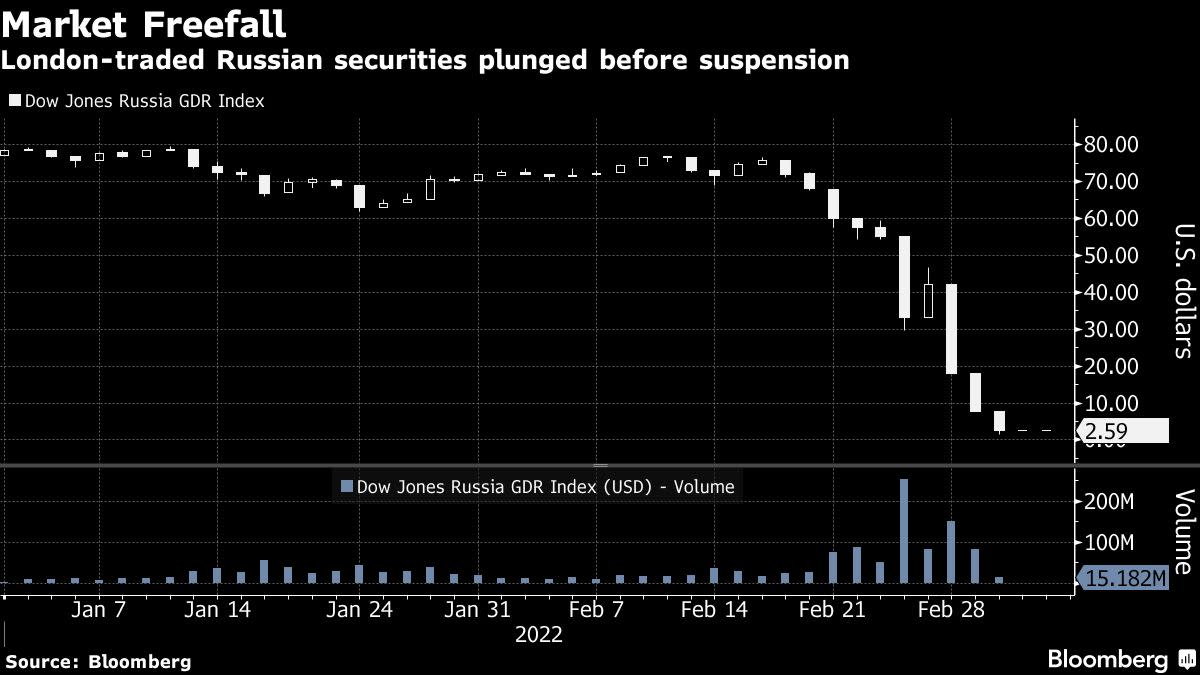
(Bloomberg) — Short sellers were right when they bet against Russia. Whether they’ll collect their winnings of more than $723 million is another matter.
That’s how much the shorts stand to make on a basket of Russian stocks listed in the U.S., U.K. and Europe that have plunged since the start of this year, according to data tracked by S3 Partners. Just one hitch: Trading suspensions tied to the Ukraine invasion have kept those bearish investors from cashing out, and there’s a risk that their profits could dwindle before trading resumes.
Short sellers borrow shares, sell them on the assumption that the price will drop, and buy them back later at a lower price so they can pocket the difference as their profit; they then return the borrowed stock. In lieu of Russian shares, the trades are often executed using American Depositary Receipts in U.S. markets or Global Depositary Receipts elsewhere.
“Russian ADRGDR short sellers are sitting on a large amount of unrealized profits, but they are not bankable until their trades are closed out and profits are realized,” Ihor Dusaniwsky, a managing director at S3, wrote in a research note. “With trading halted in many securities and liquidity in tradable stocks limited, that may be easier said than done.”
What’s more, the suspensions could eat deeper into those profits because interest rates charged to short sellers by their brokerages can rise while the delay drags on, Dusaniwsky wrote. The average amount on U.S. and other regionally traded Russian securities is 2.02%, well above the 0.65% average seen in December.
Moscow Exchange stock trading was shuttered this week and the London Stock Exchange halted dozens of Russian stocks on Thursday, but not before a more than 97% drop in the Dow Jones Russia GDR Index since mid-February. Major index providers rushed to drop Russian companies from benchmarks, too, pushing values even lower.
Some of the biggest short positions are against Russia’s biggest bank, Sberbank PJSC, according to S3. Other targets include Ozon Holdings Plc — an internet company that warned on Friday it might default on its debts if trading suspensions are extended — and gas producer Gazprom PJSC.
©2022 Bloomberg L.P.